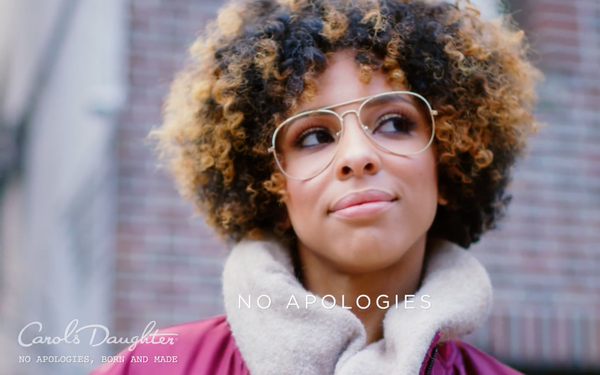
Carol’s
Daughter is going back to Brooklyn. The makeup line, owned by L’Oreal, is celebrating its 25th birthday with a campaign using its founder and 10 local beauty influencers, in videos
filmed throughout the borough. Using #NoApologies and #BornandMade as hashtags, the new effort comes at a time when multicultural beauty messages are fighting for women’s attention from
every corner of the cosmetic world.
The company created the campaign, which focuses on its
Hair Milk, Black Vanilla and Almond Milk collections, with some of the borough’s best, including ad agency Laundry Service and spoken word artist Mahogany L. Browne, using original poems. And
besides founder Lisa Price, it stars women like Cynthia Andrew, a Cameroonian attorney who blogs as SimplyCyn; Kokie Childers, a model and St. John's University student, and stylist and blogger
Latonya Staubs.
advertisement
advertisement
Price cooked up Carol’s Daughter back in the 1980s, working from her Bedford-Stuyvesant Brooklyn kitchen, and started selling her homemade bodycare products
in 1993 at Brooklyn events. Through word of mouth, it achieved celebrity status. L’Oreal bought it back in 2014, following a bankruptcy in its retail arm.
The new campaign
comes at a time when the Black haircare market is undergoing a naturalista renaissance. While overall sales shrank slightly to $2.54 billion in 2017, reports Mintel, down
0.4%, that’s more or less the result of a free-fall in at-home relaxer sales. As consumers shun them for more natural looks, products devoted to conditioning and styling, such as those sold by
Carol’s Daughter, are “experiencing double-digit and in some categories, triple-digit growth,” the market research company says.
“Black haircare is a
booming business, due to the high engagement of its core consumer,” it writes in its latest report. “As the market settles into a new natural haircare normal, Black consumer adoption of
products that promote hair health and promise tailored styling are growing in sales.”
While the market is still dominated by niche brands, mainstream lines, such as Garnier,
are increasingly reaching out to Black consumers.
And just as more companies are out to win over multicultural tresses, they’re also more aggressively catering to
complexions of color, and 40 seems to be the magic number. Beauty wags are calling it the Fenty Effect, sparked by the red-hot success of Rihanna’s Fenty line, with its 40 shades of foundation.
Since Fenty’s debut last year, other brands are piling on the 40-shades bandwagon include Dior Backstage and CoverGirl. This week, Revlon introduced Flesh, spearheaded by its chief creative
officer and Allure founding editor Linda Wells, which also has 40 shades.
Foundation for women of color is considered a key growth area, since the main reason women
say they don’t wear it is because it is often so difficult to find in the right colors. “Most Black women wear lip makeup, primarily lip gloss, every day because it’s easy to apply
and gives her an instant desired look,” Mintel says. “But some Black women are challenged in finding the right color and undertone at mass retailers,” it reports. And the current
preference for a natural look makes it easy for her to skip it entirely.